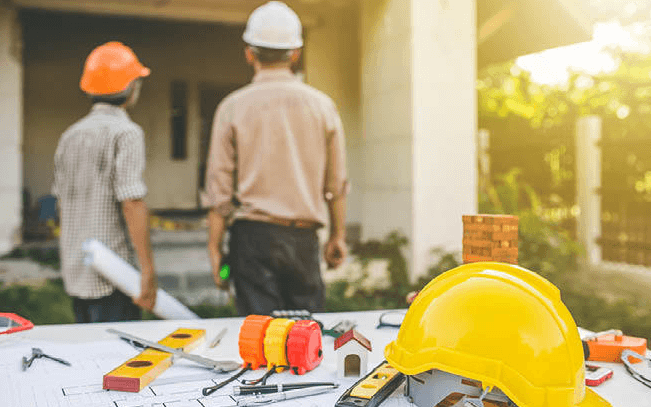Top Tips for Working with a General Contractor

Introduction
Working with a general contractor can make or break your construction or renovation project. Whether you’re building your dream home, remodeling your kitchen, or adding an extension to your property, the success of the project hinges on your relationship with the contractor. From clear communication to understanding contracts, knowing how to collaborate effectively can save time, money, and stress.
In this article, we’ll explore top tips for working with a general contractor to ensure your project is completed on time, within budget, and to your satisfaction.
Understanding the Role of a General Contractor
Before diving into the tips, it’s crucial to understand what a general contractor does. A general contractor oversees the day-to-day operations of a construction project. They manage subcontractors, ensure materials are on-site, handle permits, and communicate with clients. Essentially, they are your go-to person for everything related to the construction process.
Responsibilities of a General Contractor
A general contractor’s responsibilities include:
- Project Planning: They coordinate with architects and engineers to develop a comprehensive plan for the project.
- Budget Management: They ensure the project stays within the agreed-upon budget.
- Hiring and Supervising Subcontractors: They select and manage subcontractors such as electricians, plumbers, and carpenters.
- Scheduling: They ensure that the project timeline is followed, with all tasks completed in a timely manner.
- Quality Control: They oversee the work to ensure it meets quality standards.
- Safety Management: They enforce safety regulations on the site to prevent accidents.
Understanding these responsibilities can help you set realistic expectations and maintain a productive relationship with your contractor.
Tips for Selecting the Right General Contractor
Choosing the right contractor is one of the most important decisions you’ll make. Here are some key tips for selecting the right general contractor:
Research and Referrals
Start by researching potential contractors. Ask friends, family, and colleagues for referrals. Check online reviews and ratings. Look for contractors with experience in the type of project you’re planning.
Check Credentials and Experience
Ensure the contractor is licensed, insured, and bonded. Verify their experience by asking for a portfolio of past projects. Check if they have any special certifications or belong to industry associations, which can indicate a higher level of professionalism.
Interview Multiple Contractors
Don’t settle on the first contractor you meet. Interview multiple candidates to compare their approaches, pricing, and communication styles. Ask detailed questions about how they plan to handle your project.
Get Detailed Quotes
Request detailed quotes from each contractor. The quote should break down costs for materials, labor, permits, and any other expenses. Beware of unusually low bids, as they can be a sign of cutting corners or hidden costs.
Verify References
Ask for references from previous clients and take the time to contact them. Inquire about their experiences, the quality of work, and whether the project was completed on time and within budget.
Review Contracts Carefully
Before signing anything, review the contract carefully. It should include all the details of the project, including the scope of work, payment schedule, timeline, materials to be used, and how changes will be handled.
Effective Communication with Your General Contractor
Clear and consistent communication is the cornerstone of a successful project. Here’s how to ensure you and your contractor are always on the same page:
Set Clear Expectations
From the outset, make sure you and your contractor have a mutual understanding of the project’s goals, timeline, and budget. Discuss your expectations for the final outcome and any specific requirements you have.
Regular Check-Ins
Schedule regular meetings or check-ins with your contractor to discuss the project’s progress. This helps to address any issues promptly and keep the project on track.
Keep a Project Journal
Maintain a project journal where you document daily progress, notes from meetings, and any concerns or changes. This can serve as a valuable reference throughout the project.
Be Available for Decisions
Be prepared to make decisions quickly to avoid delays. Ensure the contractor knows how to reach you at all times, especially if unexpected issues arise that require your input.
Use Written Communication for Changes
If changes to the project arise, such as alterations in the design or materials, always document them in writing. This can be through email or formal change orders. Written communication helps prevent misunderstandings and disputes later on.
Managing the Budget and Costs
Staying within budget is often one of the biggest challenges in any construction project. Here’s how to keep costs under control:
Establish a Clear Budget
Before the project begins, establish a clear budget with your contractor. Discuss what is included in the budget and what could potentially be an additional cost.
Monitor Expenses
Keep a close eye on expenses throughout the project. Review invoices and receipts regularly to ensure there are no unexpected charges.
Plan for Contingencies
It’s wise to allocate an additional 10-15% of your budget for unforeseen expenses. Unexpected issues like discovering structural problems or needing to replace old plumbing can arise, and having a contingency budget can help you handle these surprises without derailing the project.
Avoid Scope Creep
Scope creep occurs when the project’s scope expands beyond the original plan, leading to increased costs and extended timelines. To avoid this, stick to the original plan as closely as possible and resist the temptation to make unnecessary changes.
Discuss Cost-Effective Alternatives
If the project is trending over budget, talk to your contractor about cost-effective alternatives. This could mean choosing different materials or altering the design slightly to save money.
Understanding and Managing Contracts
Contracts are a critical aspect of working with a general contractor. They protect both you and the contractor by clearly outlining the terms of the agreement. Here’s what to know:
Key Components of a Contract
A well-written contract should include:
- Scope of Work: A detailed description of the work to be performed.
- Payment Terms: The payment schedule, including any deposits and final payments.
- Timeline: The project start and end dates, including any milestones.
- Change Order Process: How changes to the project will be handled and documented.
- Warranty Information: Any warranties on workmanship or materials.
- Termination Clause: Conditions under which the contract can be terminated by either party.
Review with a Lawyer
Consider having a lawyer review the contract before signing. This ensures that the contract is fair and legally binding, protecting your interests.
Keep a Copy
Always keep a copy of the signed contract in a safe place. You may need to refer to it during the project to resolve disputes or clarify terms.
Ensuring Quality Control
Quality control is essential to ensure that the work meets your expectations. Here’s how to manage quality throughout the project:
Set Quality Standards Early
Discuss quality standards with your contractor at the beginning of the project. Specify the materials to be used, the level of finish you expect, and any other quality-related details.
Inspect Regularly
Regular inspections are crucial to catching issues early. If possible, visit the site frequently to monitor progress and ensure the work meets your standards.
Hire a Third-Party Inspector
Consider hiring a third-party inspector to assess the work at various stages of the project. An inspector can provide an unbiased opinion on the quality of the work and identify any potential problems.
Address Issues Promptly
If you notice any issues with the quality of the work, address them with your contractor immediately. Delaying can lead to more significant problems down the line.
Final Walkthrough
Once the project is complete, do a final walkthrough with your contractor to ensure everything is up to standard. Create a punch list of any minor issues that need to be fixed before making the final payment.
Handling Disputes and Issues
Even with the best planning and communication, disputes and issues can arise. Here’s how to handle them effectively:
Stay Calm and Professional
If a dispute arises, approach it calmly and professionally. Avoid letting emotions dictate your actions, as this can escalate the situation.
Refer to the Contract
The contract is your guide in resolving disputes. Refer to it to see how the issue should be handled, whether it’s about payments, timelines, or the quality of work.
Mediation and Arbitration
If you and the contractor cannot resolve the dispute on your own, consider mediation or arbitration. These are less costly and time-consuming alternatives to litigation.
Know When to Seek Legal Help
In extreme cases, you may need to seek legal help to resolve a dispute. Consult with a lawyer who specializes in construction law to understand your options.
Finalizing the Project
As your project nears completion, there are several steps to take to ensure a smooth closing process:
Conduct a Detailed Inspection
Before making the final payment, conduct a detailed inspection of the work. Make sure everything has been completed according to the contract and your specifications.
Final Payments
Once you are satisfied with the work, make the final payment as agreed in the contract. Ensure that you receive lien waivers from the contractor and all subcontractors, which protect you from future claims against your property.
Obtain All Necessary Documentation
Request all necessary documentation from your contractor, including warranties, manuals, and permits. This paperwork is essential for future reference and potential resale of your property.
Leave a Review
Once the project is complete, consider leaving a review for your contractor. Honest feedback helps others in their search for a reliable contractor and also helps contractors improve their services.
Working with a General Contractor: Final Thoughts
Working with a general contractor requires clear communication, careful planning, and mutual respect. By following these tips, you can ensure that your construction or renovation project runs smoothly and meets your expectations. From selecting the right contractor to managing the budget and handling disputes, every step of the process is crucial for the success of your project.





